Sarah Nelmes Piano
Helping your Child to Play more Piano at Home
Wednesday, November 1, 2023 by Sarah Nelmes | Uncategorized
ESTABLISH A PRACTICE ROUTINE
We all know that some children thrive on routine and need some structure to their home lives. It also help us parents to feel that we are getting things done.
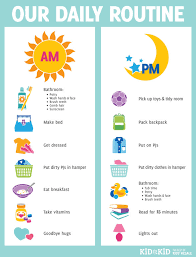
Setting up a routine to stick to, being encouraging and positive and involved in their practice may be beneficial for your child. (Believe me, at this age, your child wants to spend time with you show you what they can do - it all too soon changes as they enter those teenage years!)
You can read some of the many articles I’ve read about this so that you can pick and choose what ways you think might work for your child.
If you feel that including piano practice as part of you routine at home will work for your child, then please remember to keep the joy in it and not make it a chore.
The resources below will help you get some ideas to help you to do this.
How to Stop Nagging your Child to Practice
How to Help Your Child Practice
How to Teach a Child to Practice
How to Motivate Piano Beginners
12 Ways Parents Can Help with Piano Practice
This is a great website which has podcasts for piano parents by piano teachers and piano parents
GET ADVICE FROM OTHER PIANO PARENTS AND PIANO TEACHERS
My Non-Traditional Approach to Practising the Piano
Wednesday, November 1, 2023 by Sarah Nelmes | Uncategorized
I would like to invite you to explore the reason for my non-traditional teaching approach
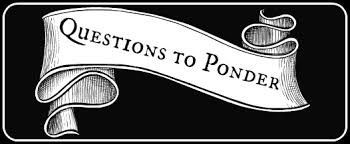
What benefit do you think learning to play the piano will have for your child?
- my child will experience personal growth
- they will learn a new skill increase their confidence and self-esteem
- it will have a positive effect on their mental health and well-being
What does success look like? (It could be any or all of these!)
- my child is happy, enjoys going to lessons and wants to continue
- they can play all the pieces in their student book
- they have passed piano grades
- they like to play the piano at home
What does not succeeding look like? (Maybe something like this?)
- my child doesn’t want to practise
- they don't want to continue piano lessons
So ask yourselves this:
Are you measuring the success of your child learning the piano by how much they practise or sit and play the piano?
Or do you measure the success based on the fact they are enjoying their lessons and want to continue.
Now, think on this.
Would you answer the same if you were to apply these questions to the other activities your child may take part in - sport or dance for example?
Here's a super blog post I found about teaching football written by a professional football coach. This table somes it up but you can read his post here. However, read it as if he were talking about playing the piano instead of football!
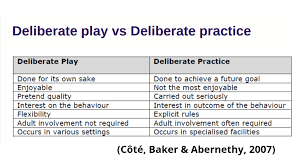
Can you see how this relates to learning the piano? So why do we measure the success of learning the piano differently to that of other activities that your child takes part in?
Would it bother you if your child didn’t practise their dance routines or kick a football in between lessons? Would you think they weren’t succeeding or getting anything out of their lessons?
If you want - or they want to - become proffesional/concert pianists and take part in competitions, then that's another thing entirely. How many parents or children start activities with expecations of becoming elite at whatever they do?
Here are some questions that I would actually like you to answer
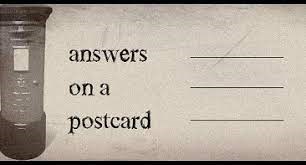
What does progress look like for my child having piano lessons?
It could be:
- sitting at the piano and playing music they like
- *passing exams
- playing in concerts and recitals
- **being able to take over as the church pianist when Mrs Wouterz becomes too deaf to play
* I am not against piano grades if a student wants to
( I have one who is desperate to do so!)
**That was the REAL reason my parents insisted I kept on with my piano lessons for ten years even though I hated practicing!)
Do you think piano recitals would be a good way to hear how you child is progressing?
You may have your own feelings about when you had to perform in front of others. I know I hated it.
I'm going to post another blog about this once I get some of your answers.
SO that's it dear parents. All this holds true to my teaching philosophy. And I stand by it even if it goes against the norm and may not be what some people think learning the piano should look like.
I have received nothing but support and kind words about how much your children are enjoying their lessons. And for me, that's what it's all about.
Should I Worry if My Child doesn't Practice at Home?
Wednesday, November 1, 2023 by Sarah Nelmes | Uncategorized
I know that you are aware, in some way, of my teaching approach and the way I love to teach your children.
Keeping it fun and creative and varied!
Bribing
Rewarding them with scented stickers and marhmallows for just turning up! (Sorry, only my home students get marshmallows!)
However, I wanted to write more about the dreaded P- word! PRACTICE!
You know that I don’t expect or demand that students will sit down and practice at home.
( I would love it if they did as it brings tears of joy to my eyes when students do!)

When I see your child each week, I don’t ask them if they’ve practised at home. I ask them if they want to show me anything they’ve been playing on the piano. Sometimes I get made-up songs, or little musical motifs, sometimes songs parents have taught them, and sometimes they are very excited to show me the piece we were working on from last week. Most often, they say they haven’t had time to play. And I make sure they know that’s ok.
When you all signed up your children for lessons with me, I made it clear that I don’t tend to push practising that much at the beginning. Wanting instead to focus on the enjoyment of learning and the developing of a lifelong love for music. This is what most of you want for their children. For your children to enjoy playing the piano and look forward to their lessons

Focusing on enjoyment instead of time spent practicing encourages intrinsic motivation and engagement in music learning, which leads to better long-term outcomes. Instead of stressing over practice minutes, your children can focus on *having fun, expressing themselves, and cultivating a lifelong love for music.
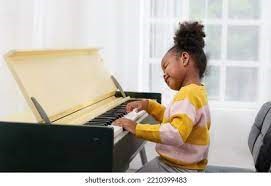
This might be quite a shift in thinking for both parents and music teachers alike! I have to agree! Not having to practice if they don’t want to?! How are they supposed to get better then? How are they going to succeed in their piano lessons?
But what does success in learning the piano look like for you?
(This is what it looks like for me and hopefully you too - *having fun, expressing themselves, and cultivating a lifelong love for music.)
If you would like to delve a little deeper into this mind shift and my thoughts on playing the piano at home, scroll on

However, you know your child best. So I want to present both sides.
I also want to provide you with some help if you feel that your child will benefit from playing regularly at home and some reassurance if you are happy for your children to sit and play when the mood takes them or when you suggest how nice it might be!
And of course, you don't have to choose one way or the other - you may want to try and mix it up or try one way for a bit and see how it goes.
So, scroll on to read my posts about
My Non-Traditonal Approach to Practising the Piano
and
How to Encourage More Practice at Home

So whatever your view on the P word or how you measure success in learning the piano - read on when you have a minute...
